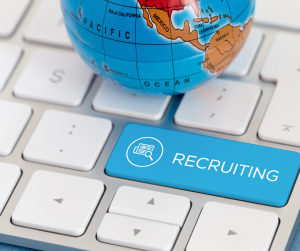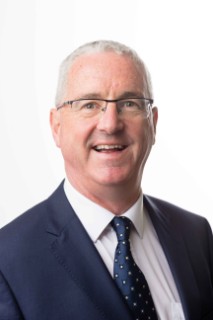The last two years have been very challenging for business globally and for the Irish market, which is small, open economy due to the twin challenges of Covid and Brexit. Our economy has proved very resilient despite a sharp shock to sectors such as hospitality, entertainment and retail. These sectors are still feeling pain due to the pandemic, but hopefully will bounce back as restrictions are lifted.

A key part of this market resilience has been underpinned by a very good performance and contribution by the foreign direct investment sector. This FDI investment and vote of confidence in Ireland Inc. has allowed the economy to weather the dual storms over the past few years. The net jobs growth for IDA backed companies is over 29,000 and runs at 275,000 in total. Another key factor for the jobs-growth is that over 50% of the positions are for regional centres outside of Dublin. US companies account for the largest proportion of investment followed by Europe and Emerging Markets. There have been a significant number of investments from existing and new companies such as Stryker, Boston Scientific, Astra Zeneca, Stripe and Workday to name a few.
The Irish indigenous sector has also held up with an increase of over 19,000 positions generated by Enterprise Ireland backed clients. These businesses tend to be export focused, in terms of product and services and reflects significant confidence and entrepreneurial spirit within the business sector. Many of the R&D projects in the universities have been supported with their growth plans by EI and they are continuing to deliver on job numbers. The typical focus of these initiatives is tech-based software, hardware or added value services to support global markets. The food and agri sectors also have demonstrated that they have risen to the Brexit challenge in developing new markets.
“FDI investment flows both directions in that Irish companies employ over 110,000 staff in the US contributing over $4 Billion to the US economy, so that this investment is important to both countries”, says Ken Murphy, Director of CareerWise Recruitment. “Many of the successful global Irish companies employ senior managers who gained invaluable training in the multinational sector in Ireland. Irish Executives are very well thought of across the globe and are always interested in enhancing relationships with Ireland when global investment decisions are up for debate.”
In addition to good inbound investment in financial services and information, communications and technology, value added manufacturing and R&D in technology and life sciences sectors continue to generate over 42% of the FDI employment growth. “Ireland certainly punches above its weight in terms of high-tech, medical device and pharmaceutical export performance with companies in these sectors adding significant value to Ireland’s export figure”, says Ken. “What started as low-end, tax effective manufacturing has developed into a highly sophisticated, lean, science and technology-based manufacturing sector.”
To support this thriving sector, the universities need to continue to produce top quality science, IT and engineering graduates. The colleges have been very smart in terms of engaging with FDI companies to tailor relevant courses that meet the ever-changing needs of industry. This flow of fresh talent needs to always evolve to keep up with changing demands and the companies need to continue to support graduate placements so that we can keep the talent in Ireland.
Covid has had an impact in terms of the ability to source talent internationally and this is a mainstay of Ireland’s employment market. Many skilled workers returned home to European countries and have been slow to move back to Ireland. We are part of a global war for talent and the environment in Ireland must be attractive to entice technical and management professionals. The government needs to look at tax rates for top end R&D and senior managers, so that we can bring them to our shores as has been done in several European countries.
The other shift in the labour market is the growing demand for flexible working arrangements from employees. With most of the support staff working from home for a long time, people have become used to the flexibility of this arrangement. Many are looking to get back to the office, but there is strong demand for a hybrid option to be defined on a permanent basis. This may include hot desks, three days on-site or other such structures that work for both employer and employee. This remote infrastructure has been accelerated by the pandemic and is expected to become a longer-term part of business and required by employers to attract new staff.
The other challenge is to entice the non-EU talent in the emerging markets to Ireland. Tax rates and overall cost of living are very important for mobile professionals who are looking at different geographies. Ireland also has a problem with the work permit approval time which has moved to 12-14 weeks even for preferred partners. We are losing candidates to the UK in the semiconductor sector, as they have managed to reduce approval times to 4 weeks for critical skills applicants.
In summary, the Irish economy has done extremely well considering the challenges faced and the Irish workforce has demonstrated the capability to adapt and flourish. Business growth and exports have been powered primarily by US and European FDI companies. The flow of qualified graduates is critical to success moving forward and there needs to be a focus by government to make Ireland an attractive location for critical skills talent needed to support the growth.

Ken Murphy graduated from University College Cork in 1987 with an Electrical Engineering degree before moving to the US as a Network Design Engineer with BellSouth Corporation. His return to Ireland in 1989 heralded a career which concentrated on the multinational sector, and involved working with companies such as Apple Computer, Cabletron, FMC Automotive, Moog, General Semiconductor and Technicolor.
Ken is a specialist in quality management, purchasing, logistics and supply chain management. He has significant expertise and experience in managing the changing demands of the global media, electronics and automotive sectors at operational and project management levels.
Ken leads CareerWise Recruitment’s Cork operations. He has served on local and national committees of IPICS (The Supply Chain Management Institute), CIPD, the Cork Electronics Industry Association (CEIA), and has completed a three-year term as Chair of the UCC Alumni Board.
Ken has recently been elected as a Director of the Cork Chamber for a four year term to help promote business and drive policy objectives for the Cork Region
CareerWise Recruitment. EastGate Village, EastGate, Little Island, Cork.
Phone: +353 (0) 21 206 1900
Email: info@careerwise.ie